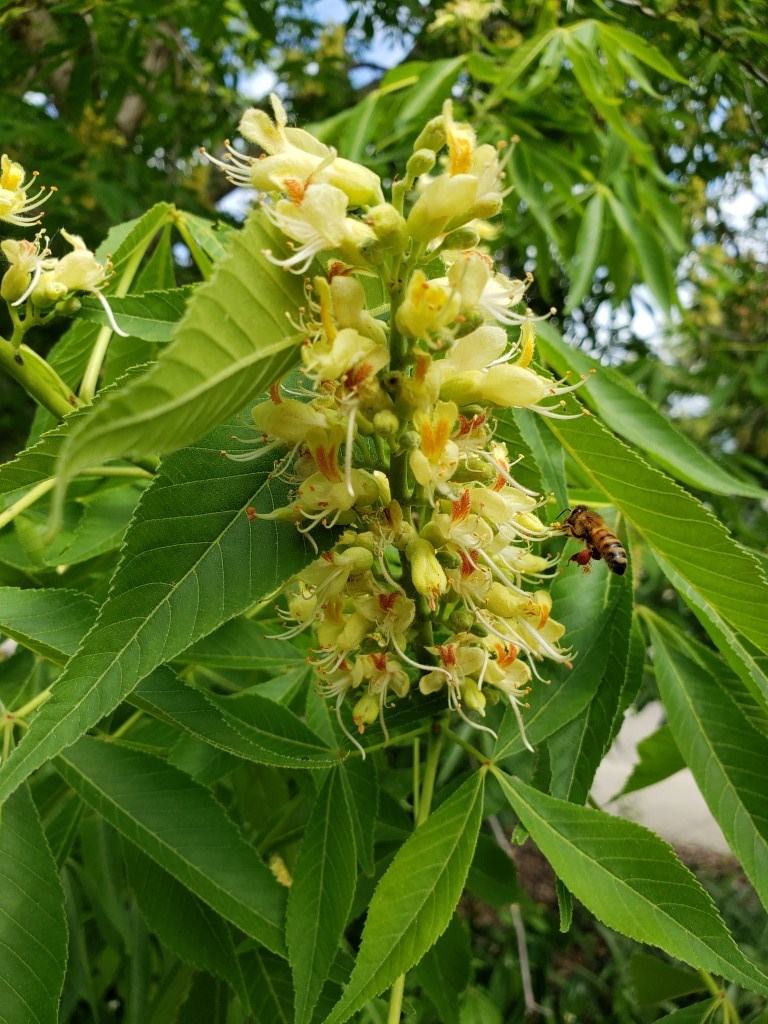Trees in the landscape are extremely important. They are the most visible element – making their presence known every month of the year. It is the trees in the landscape that make the garden. They provide a sense of scale, a structure with a great underlying sense of awe. After all, is there a garden without trees? They provide a scale that is actually the setting for the entire garden. Take a moment to look at the trees that surround your living space. There are some principles that can guide you when choosing new selections for your space.
Essentially, every tree should have a function in the landscape. This of course is true of each and every element in the landscape but it is the trees that are visible each and every month of the year thus giving them added importance. Functionally, a tree should provide shade; or beauty; or fruit, flowers and/or colour. They provide the bones of the scape so should in fact be chosen with great care.
Are they proportionate with your house or do they tower above? Believe it or not the trees around your home should be chosen for their mature size to be in scale with the rest of the landscape – including the house. Therefore, a bungalow should have trees that are smaller in stature than a larger and taller home and garden. In most cases this does not happen. Towering trees are the norm – but from the perspective of the landscaper – that is not actually desirable as huge trees around a small house actually make the house appear even smaller.
One of the most beautiful evergreens you can grow is the Swiss stone pine (Pinus cembra). This is a large pine with very soft, fine-textured needles that grow in bundles of five. It is resistant to sunscald and retains the lower needles with ease. Just one more great feature is the seeds of this pine are edible pine nuts.
Likewise, one of the most beautiful deciduous trees that is easily grown is the Ohio buckeye (Aesculus glabra). It is a very large tree that is useful for shade as it has a very dense canopy. The leaves on this tree are truly unique as they are palmate in nature – which means that the leaves resemble the shape of a hand with a palm and five fingers! They have elaborate flowers in spring that are long upright flower-spikes at the tips of the branches. These flowers turn into a fruit that is truly unique. This is a selection that has beauty for all seasons of the year.
Another “tree of mention” has to be the silver maple (Acer saccharinum). The leaves have the true maple leaf shape but the underside is a beautiful silver. On windy days, the leaves appear to be totally silver which is, of course, how this tree was named. To make this tree even more attractive they turn a beautiful yellow in fall with bright red seeds.
The bur oak (Quercus macrocarpa) is a tree whose natural range is from New Brunswick right down to south-eastern Saskatchewan. It is a true survivor and a good choice for any landscape on the prairies. In the early days when prairie fires would sweep across the land, the bur oak was able to survive because its bark is actually fire resistant. The bark of the bur oak is thick and corky which acts as a protective layer when subjected to intense but short-term heat that prairie fires are known for.
Hanbidge is the Lead Horticulturist with Orchid Horticulture. Find us at www.orchidhort.com; by email at info@orchidhort.com; on facebook @orchidhort and on instagram at #orchidhort.
Tune into GROW Live on our Facebook page https://www.facebook.com/orchidhort or check out the Youtube channel GROW https://www.youtube.com/channel/UCzkiUpkvyv2e2HCQlFl0JyQ?

.jpg;w=120;h=80;mode=crop)
.jpg;w=120;h=80;mode=crop)
.jpg;w=120;h=120;mode=crop)
